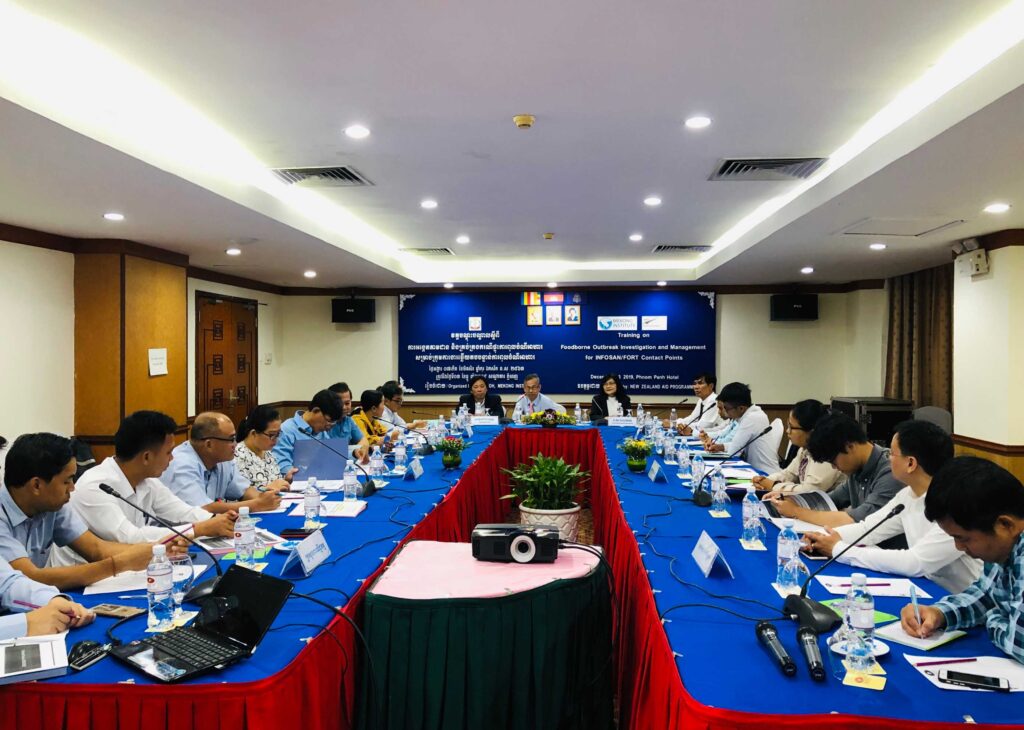Mekong Institute (MI), in collaboration with Cambodia’s Food Safety Bureau of Ministry of Health’s Department of Drug and Food (DDF), trained 25 government officials on foodborne disease outbreak investigation and management at Phnom Penh Hotel in Phnom Penh, Cambodia last December 3. These government officials are part of the International Food Safety Authorities Network/Foodborne Disease Outbreak Investigation and Response Team (INFOSAN/FORT) from the ministries of agriculture, forestry and fisheries; industry and handicraft; commerce; health; tourism; and economic and finance.
In her opening remarks, Ms. Maria Theresa Medialdia, Director of MI’s Agricultural Development and Commercialization Department, briefed participants on the background of MI and PROSAFE Project. She also explained that food safety bears multi-sectoral concerns and requires a multidiscipline approach to manage food safety risks along the food supply chain.
“Thousands of people in Cambodia and other developing countries are affected by unsafe food but cases are rarely reported. Most of reported outbreaks are of methanol poisoning and massive food poisoning cases in big events. There is a clear need to enhance the capacity of inter-ministerial FORT team on food outbreak investigation and management to detect outbreaks, so less people get sick and prevent similar outbreaks in the future,” she said.
Likewise, Dr. Heng Bunkiet, Director of DDF, briefed participants on the foodborne outbreak report. From 2014 to 2019, 134 outbreaks were reported, resulting in 5,825 cases of illnesses; 5,598 reports of hospitalization; and 81 deaths. Dr. Bunkiet added that the outbreaks were caused by poor hygiene practices in food preparation, storage temperature control, cooking, cross contamination, as well as use of unsafe water and raw materials.
“This important training course provides FORT focal points with an overall approach to outbreaks of foodborne diseases, including preparation, detection, investigation, control, and follow-up. This course also describes the role of all key government agencies and individuals involved in foodborne outbreaks and provides recommendations based on the Standard Operating Procedure,” he added.
Dr. Bunkiet concluded his speech by encouraging participants to apply knowledge and skills gained from this course to improve their current work and responsibilities.
MI, through the support of the New Zealand Aid Programme, provided post-training outreach support through action plan implementation. This training was spearheaded by Mr. Ph Aing Hoksrun, Ms. Min Sokunthea, and Mr. Hong Phiphup who attended the Regional Training Program on Food Safety Emergency Management in the Supply Chain held at Mekong Institute last September.








